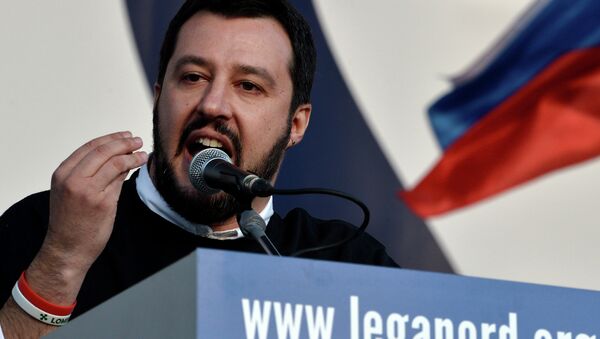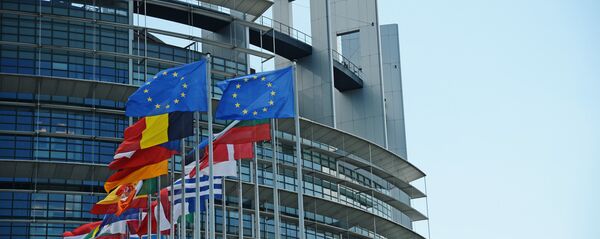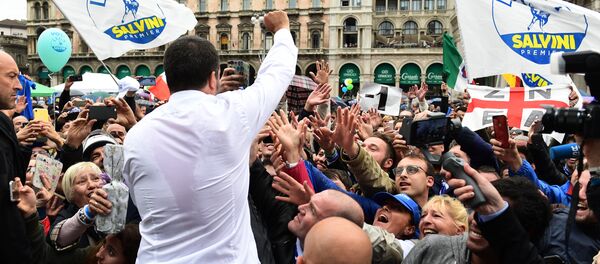Lorenzo Codogno, a visiting professor in practice at the European Institute of the London School of Economics and Political Science and former chief economist and director general at the Treasury Department of the Italian Ministry of Economy and Finance spoke with Sputnik about the recent European elections.
Sputnik: Salvini said that the European election success of the Lega Party in Italy, the National Rally Party in France and the Brexit Party in the UK is a new European Renaissance. In your view, will this affect the EU politics overall?
So, I think they will have a platform where they can send political messages and a platform where they can get publicity and funds, but at the end of the day, at least on the European level, they won't be particularly influential.
Sputnik: What impact will this have on Italian politics?
Lorenzo Codogno: It's a different story at the national level because both in Italy and in France, and I would say also in the UK, the anti-European and right-wing movements [generated] a big outcome and were highly successful.
As we know, Le Pen in France came out ahead of Macron, although the French political system is rather stable because the situation won't change until the next political elections. In the UK, it was pretty much a referendum, if you wish, between Brexit and no Brexit and it looks like the Brexit camp is still rather strong; that would be a strong signal for the new prime minister that will be elected pretty soon.
Still, politically, I think the situation might have changed in the sense that Lega is now by far the most important party and the balance of power between Lega and the Five Star Movement has completely reversed.
So, I think there is a chance that if Salvini feels that together with Brothers of Italy and maybe some parts of Forza Italia he might actually get a majority in both houses; he might try to engineer a crisis and go for early elections. We'll see.
Sputnik: What are the reasons behind this shift in the EU's political landscape?
Lorenzo Codogno: I think Europe is not really fully delivering on its promises, so there is a lot of disappointment because of the lack of progress; and in some countries there is disappointment for many specific issues, such as immigration on the one hand and also probably the fiscal behaviour of Europe.
So, I think that the picture that emerges from the elections is that the European Parliament is increasingly fragmented, and it will be more and more difficult to produce advances at the European level on major key points, especially on European integration.
READ MORE: Traditionalists Secure Majority in EU Parliament, Face Right-Wing Competition
So, I think, on the one hand, it hasn't really been a big advance of Eurosceptic parties and anti-European movements, but on the other hand, the fragmentation of the current parliament, which might be divided not only among political families but also between pro-European integration and against-European integration, and also among national dividing lines. It's a parliament which is a bit divided, which will make European politics even more complicated, I would say.
The views expressed in this article are solely those of the speaker and do not necessarily reflect the official position of Sputnik.





